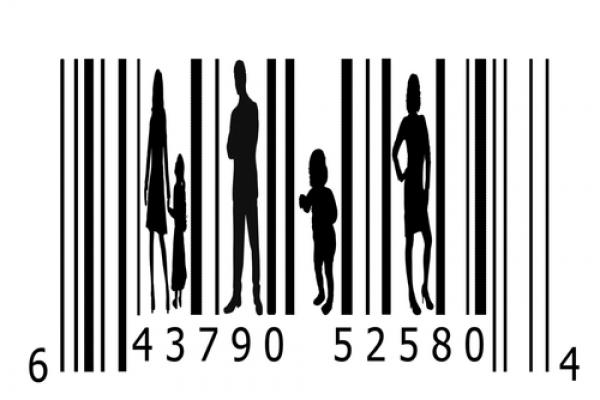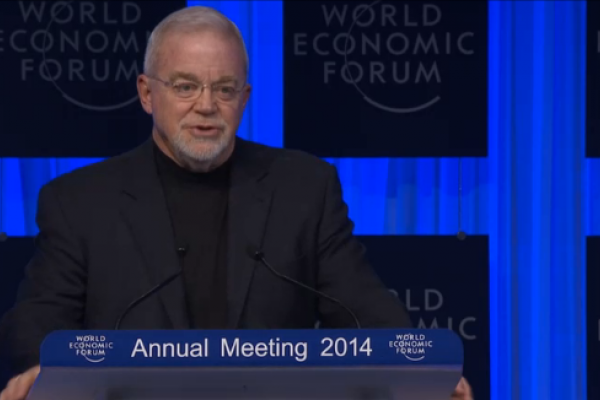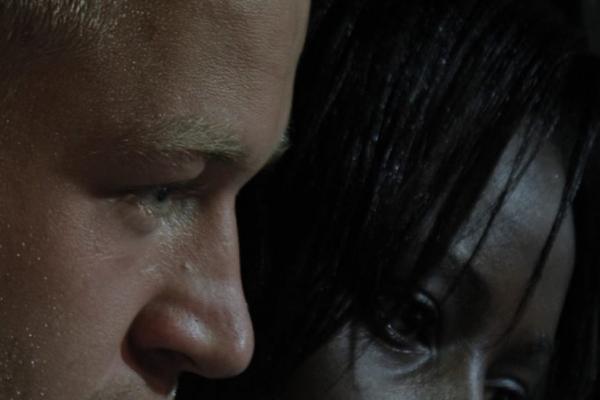Call me old fashioned, but our culture hit a new low at the Grammys when 33 couples were married. Some of them were gay and lesbian couples.
Indeed, it was a bad day for marriage.
First, Macklemore sang "Same Love," then Queen Latifah officiated a wedding for 33 couples, and then Madonna sang her 1986 single "Open Your Heart."
Now, don’t get me wrong. I love Macklemore’s Same Love. I love its pro-same-sex marriage message because of my Christian faith, not in spite of it. I’ve written about why Christians should embrace same-sex marriage here, here, and here, but Macklemore’s theological argument in the song is as good as any.
After two doves released by Pope Francis and two young children were attacked by aggressive predator birds, a leading animal rights group called on the pontiff to stop what they called “outdated traditions.”
The Vatican regularly releases doves as a symbol of peace, and in multiple instances they have been chased and sometimes captured and killed by more aggressive fowl in the area. But Sunday’s events were more noteworthy because the scene of a seagull and a crow swooping in to attack the doves was captured by several of the photographers in St. Peter’s Square as a crowd of tens of thousands — including several thousand children — looked on.
Both white doves managed to escape their predators after a brief tussle, but it’s unclear what ultimately happened to them.
The son of a Florida fertility doctor was sentenced Monday to nearly 14 years in federal prison for duping his pregnant girlfriend into taking medication that caused her to abort her 6-week-old fetus.
John Andrew Welden, 29, had pleaded guilty in September to forging a prescription for Cytotec, the brand name for misoprostol, in March 2013, which he relabeled as the common antibiotic amoxicillin. He convinced his former lover, Remee Jo Lee, that she had an infection and needed to take the antibiotic he claimed his father had prescribed. She miscarried within hours.
Welden, of Lutz, near Tampa, was sentenced to 13 years, eight months in a minimum-security facility, four months less than what prosecutors had sought in exchange for dropping a murder charge.
Twelve year old Kathy* became caught up in a web of violence and forced participation in the commercial sex industry. She was taken from city to city and serviced many, doing what they wanted. Pregnant with her son, she found a way out or as she says, “God reached in and pulled me out of hell.” Now, many years later, she gives testimony to her story and strives to help other women “out of the business.”
My experience is with women like Kathy. By federal law, any minor exploited by prostitution or pornography is considered trafficked, and I am amazed at the courage of these survivors.
January is the National Human Trafficking Awareness Month. Have you been made more aware or knowledgeable? Do you know that human trafficking is defined as “modern day slavery” because it controls a person through force, fraud or coercion — physical or psychological — to exploit the person for forced labor, sexual exploitation, or both? Women, children, and men are all affected by this crime.
In his New York Times column, “ Alone, Yet Not Alone,” David Brooks laments the “strong vein of hostility against orthodox religious believers in America today, especially among the young.” Even more disturbing for Brooks is that in his experience, the opinion of young people is too often justified. He observes that religious believers can be “judgmental,” “hypocritical,” “old-fashioned,” and “out of touch,” and he wonders why that’s so. Brooks, who is Jewish, knows that the Judeo-Christian tradition reveals a God who desires mercy and not sacrifice, who calls us toward a radical love that includes our enemies. As evidence of the core of orthodox belief, he offers two giants of the Judeo-Christian tradition, Rabbi Abraham Heschel and Augustine, who give testimony to lives of compassion and love inspired by devotion to the biblical God. Lives that tolerate ambiguity and uncertainty as essential components rather than disqualifiers of faith.
So what gives? Why do religious believers spend so much energy reinforcing their (our – I’m one of those orthodox believers) borders, building thicker and higher dividing walls designed to keep out the underserving, the sinners whom not even God can love? Just who is kept out varies widely, but it seems religious people are utterly convinced that they are on the inside with God. No doubt about it. Musing on this sad fact, Brooks comments:
There must be something legalistic in the human makeup, because cold, rigid, unambiguous, unparadoxical belief is common, especially considering how fervently the Scriptures oppose it.
Brooks is on to something here – there is something rooted in our “human makeup” that the Scriptures fervently oppose, but it is not legalism per se.
"We are perhaps among the most included in this global economy. So how will the most included reach out to the most excluded this year?"
Editor’s Note: The following text and video is from Jim Wallis’ closing talk at the World Economic Forum in Davos, calling those in positions of leadership to implement values that benefit the common good.
In our opening session for this 2014 annual meeting, we heard a letter read to us from Pope Francis, a leader who has captured the attention of the world. He called us here to “deeper reflection” and to “reshaping the world.” He said something quite striking, “I ask you to insure that humanity is served by wealth and not ruled by it.”
So, to that deeper reflection: I believe that for many of us here at Davos, there was a moment — a remark from a session, a smaller discussion, a meal interaction, a personal conversation, or a walk in the snow — that made us think and feel some things we don’t normally focus on in our day-to-day environment back home. It could have been an insight, a new angle or framework, a challenge, or a reminder of things lost — something that struck you more deeply than just more talk and made an impact on you. Often these insightful moments are about our values, or challenge our values, or bring us back to a moral compass that we have, or would like to have, or miss from earlier in our lives.
CNN reports on Usoni , a futuristic television drama produced in Kenya that is about reversed immigration. The show depicts Europe in 2063, where life has turned unlivable after a deadly series of natural and economic disasters.
Europeans are desperately seeking a way to get to a livable continent south of them: Africa. The hardships in making the trip are unfathomable, and once the immigrants arrive, they are unwelcome, harassed, and rejected. The story follows a young couple, Ophelia and Ulysse, who are seeking to make their way with their unborn child to the land of promise.
Yes, the comparisons today to those seeking to immigrate to Europe (with obvious parallels to America) are intentional. Marc Rigaudis, the Kenya-based French filmmaker who created the program, is making a point to help us walk in the shoes of those whom we know the Bible calls “aliens and strangers.”
The chilling trailer depicting people like me being treated as illegal immigrants is enough to make one’s hair stand on end.






